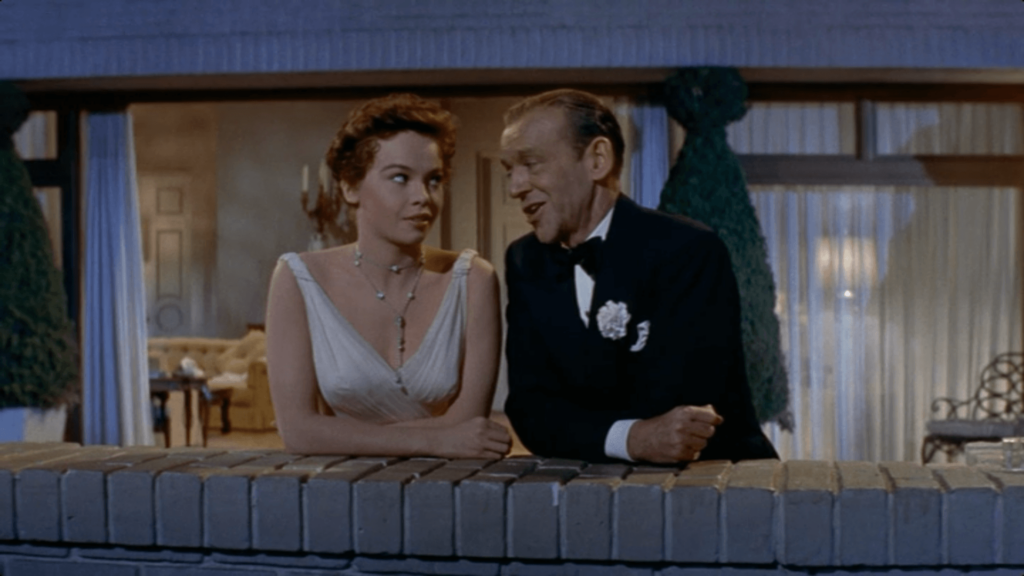
It’s too bad that basically any positive review of this film in 2024 needs to go on the defensive about the film’s premise, which would seem from a logline level to be “problematic” at best and “gruesome” at worst, because this is a really marvelous example of classic Hollywood musical. But, I’ll start with defending the story: Based on a book written by a woman and with a script co-written by a woman, this is not the sugar daddy, male gratification fantasy you might fear from the “anonymous older man donor” logline, and I’m pretty sensitive to such ookiness. Basically every beat and character dynamic is the best and least predatory version of itself, and the film addresses head on both its May-December age gap and the money-driven power imbalance with nuance and respect for Julie; honestly better than plenty of more recent films built with modern mores. The entire driving conflict of the film’s second half is the characters confronting the potential impropriety of the relationship and ensuring that Julie and Jervis’s love is authentic and earned. I find it notable that none of the female characters, least of all the liberated college women, have any issue with a 22-year-old falling in love with a charming and kind 50-something; it’s only the men obsessed with appearances who question the matter. (Plus, of course, Daddy Longlegs comes from a different time and you need to view it through 70 year old goggles. But even still, it holds up a lot better than it could have.)
With that out of the way, pretty much every aspect of Daddy Long Legs is stupendous. The production is gorgeous and huge, with outstanding Technicolor hues; I would kill to see this on the theater screen with a good projection. The choreography makes terrific use of the widescreen frame, and I just couldn’t believe my eyes that the takes were as long as they were, sometimes longer than a minute, yet the dancing so perfect (is that normal for these musicals?). The songs aren’t at the level of a Singin’ in the Rain, but how is that standard fair to any other movie? Astaire is sensational, but it’s Caron’s innovative, ballet-heavy dream sequence number near the end of the film that knocked my socks off. It’s better AND more narrative-driven and character-revealing than the comparable “Broadway Melody” if I may once again compare the film to the only studio-era musical I know inside-and-out. (I understand Daddy Long Legs to be unusual for not being an MGM production yet closely resembling that studio’s brand.)
And the non-musical stuff works well, much better than I expected. The script is well-structured and interesting, not just bones to get us from song to song; the acting is strong (Thelma Ritter showing up is always a treat); the ’50s college kid time capsule lots of kitschy fun. The story could have picked up the pace a smidge in the opening half, and the cast is maybe missing a giddy comic powerhouse third wheel (or maybe I need to stop just saying “this should be more like Singin’ in the Rain”). Ritter, Fred Clark, and Terry Moore collectively get you much of the way there, anyways.
The classic studio musical is a strange, somewhat forgotten beast of cinema, but Daddy Longlegs is close to a quintessential example of the format. It’s not the most iconic musical, nor the best, and it likely will never be beloved as the classics because of its dated premise, but Daddy Longlegs is a must for any musical lover.
Rating: *** 1/2 (out of 4)




